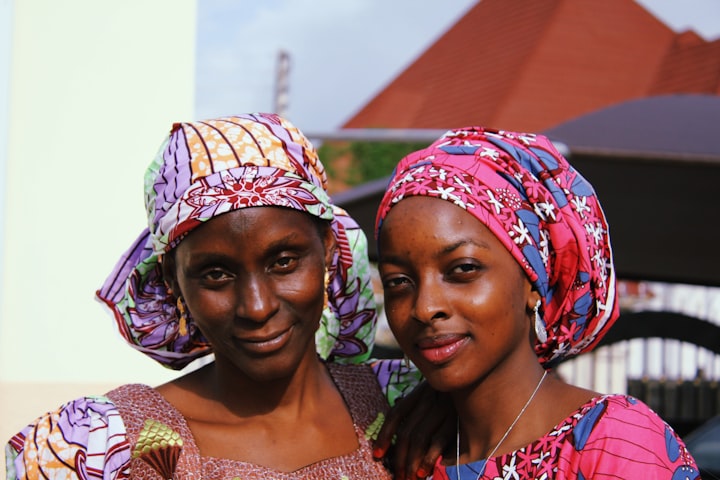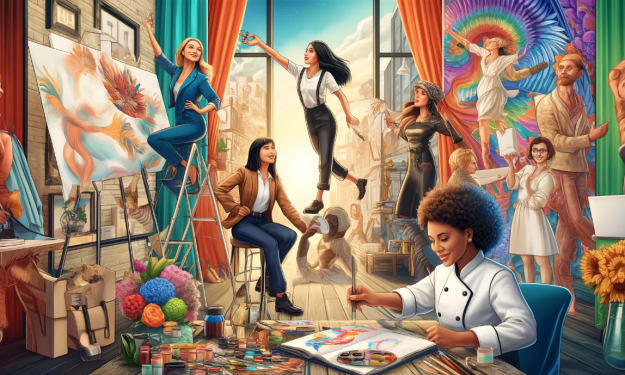
Black and White womanhood and the intersectionality of race, class, gender, capitalism, state power etc., has influenced the injustices that Black women have endured for centuries. Black women are still enduring the impact of slavery that supports this false white superiority and black inferiority established by an unfair healthcare system, Justice system, education system, employment system, and the social institutions that support this concept. Black women have been the targets for this form of genocide in many aspects in society such as state violence, and sexual violence. For example, the misrepresentation that Black women are inherently aggressive and should be managed as such when targeted by law enforcement. While their white counterparts are handled with care and courtesy.
Which we’ve witnessed in cases such as Sandra Blands, a woman who was unlawfully detained for not using a turn signal and later mysteriously died in police custody. Her death has sparked outrage within the Black community because of the many other cases there are of law enforcement who are biased using excessive force against Black women, men, and children. Research shows that “Black women were about 17 percent more likely to be in a police-initiated traffic stop than white women, and 34 percent more likely to be stopped than Latina women” (Police-Public Contact Survey, 2015). Which means Black women are incarcerated at alarming rates more than their white counterparts and it’s swept under the rug. In one of the class reading materials “Say Her Name” the author states “Addressing Black women’s experience of police violence requires a broadening of the public conversa- tion, informed by robust research, analysis, and advocacy”(Say Her Name, 2015). Black women have substantially been left out of the national record on police violence when it affects us as much as it does Black men. Statistically four in ten Black Women will report and experience some form of sexual violence while their White, Latina, and Asian/Pacific Islander counterparts report lower rates. It stems from the myth that depicts Black women as hypersexualized from early slavery till now, it has been manifested through our political and cultural environments for centuries.
This idea that Black women were vessels for sexual desire to justify the enslavement, rape, forced reproduction, and other forms of sexual coercion forced upon Black Women in the early onset of Western colonization. Deeming it culturally acceptable for Black women to be sexually abused by white European men. Fast forward to the present in some cases the sexual assault is perpetrated by men occupying state jobs. For instance, the Carmita Wood case where Wood was sexually assaulted by her then boss Supreme Court Justice Clarence Thomas. Woods stated that “She was experiencing physical problems due to the stress of interacting with her boss, who would often pin her against her desk with his body and describe how aroused he was. She tried to transfer, but her transfer was denied, so she quit and filed for unemployment benefits. The benefits were denied on the grounds that she had left her job “voluntarily” and for “personal reasons” (Sexual Harassment Law Was Shaped by the Battles of Black Women, 2017). This is just one of the many examples of how Black women face unjust disparities that their white counterparts are privileged and protected from ever sharing the same experience
Although, Black Women have fought so hard to be included in the conversation regarding feminism, and womanhood to the point where they have even gone as far as to create a space specifically for the Black woman and her experiences and struggles in society they have failed in a sense to guarantee a safety plan for Black women when encountering the police. All too often the Black woman focuses on the struggles and injustices that affect our Black men and children that we forget about our own protection. The #Black Lives Matter Movement was created by three Black Women who were tired of the senseless murders of unarmed Black men committed at the hands of white police officers and law enforcement. Also creating protection plans for Black men and boys so that when they encounter law enforcement they have a plan in motion that will protect them from racially profiled situations such as leaving your driver’s license, registration, and insurance on the dashboard so that it’s visible for the officers to see, while not incorporating any plans for Black Women and girls when we encounter law enforcement somehow excluding ourselves when we experience and are impacted by police brutality as well. Police brutality and sexual harassment are equally based when describing the mistreatment of Black Women at the hands of law enforcement.
One way Black Women have resisted police violence is with the Sandra Bland “Say Her Name” movement, which continues to fight for the rights of Black Women by calling attention to violence against Black women in the U.S., the African American Policy Forum, the Center for Intersectionality and Social Policy Studies at Columbia Law School, Say Her Name: Resisting Police Brutality Against Black Women documents stories of Black women who have been killed by police, shining a spotlight on forms of police brutality often experienced disproportionately by women of color. It’s tailored to inform and educate the media, organizers, researchers, policy makers, and other stakeholders about Black women’s experiences of profiling and policing.
The Black Women’s Roundtable is an organization/program that focuses on the needs, conditions and concerns of Black women on a global scale. They are going to address all the challenges Black Women face economically, with non-adequate healthcare, within the justice system, education system, employment system, etc. by implementing its NCBCP’s BWR 2019 BWR Racial, Economic & Gender Justice Empowerment Project (BWR Justice Project ‘19) and expand its BWR state-based networks in CA, LA, MS and other states. From a Womanist view I believe that this project is the perfect balance of including Black Women into the conversation of political aspects and important measures that Black Women are in need of which are basic human rights that all women including Black Women should be able to benefit from. The project would promote education to Black Women and girls on the importance of creating policies that guarantees “economic opportunity, quality of employment and public education for black women, families and communities, affordable healthcare, raising the minimum wage, protect Medicaid, Medicare & Social Security, reducing the price of prescription drugs and other safety net federal and state-based policies. Promote the adoption of work/family and equity policies for women and working families to achieve economic security and prosperity now and for future generations including paid family leave, paid sick days, equal rights and equal pay. Develop national, state, local and state-based organizing campaigns and develop long-term strategies to win on our issues in key states in a racially polarized environment including criminal justice/policing, reform, hate crimes/racism, voting rights/protecting our democracy, immigration reform and more” (State of Black Women In The U.S. & Key States, 2019).
About the Creator
Sherice
I’m a Social Work Major with a wild imagination. I am super creative, a social butterfly, unapologetically black, and a free thinker.





Comments
There are no comments for this story
Be the first to respond and start the conversation.